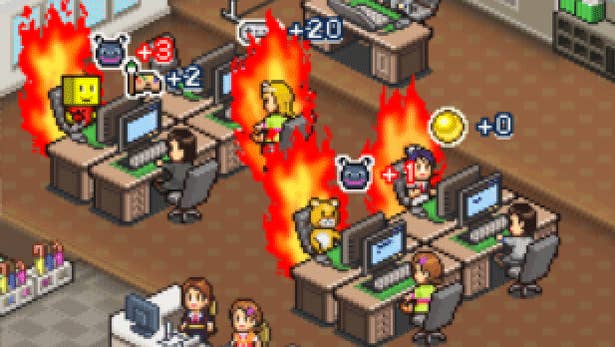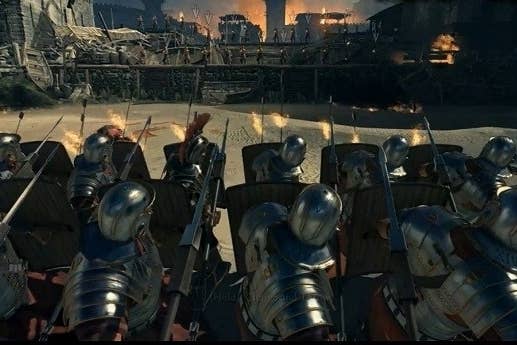Game Devs: When Does Crunch Cross The Line?
Rubin, Spector, and more on crunch and why it won't ever die
Last week, Crytek stepped into a world of trouble with a tweet about the development of Ryse: Son of Rome for Xbox One. The company boasted of feeding its crunching team members "more than 11,500 dinners" during the game's development. The #RyseFacts hashtag was co-opted by Twitter to strike out against the idea of crunch development as a good thing. Among those who had negative tweets about crunch culture was former Epic games designer Cliff Bleszinski, who said the practice was "unsustainable".
"'Crunch time' = bad management," tweeted Bleszinski. "This just in: Next gen AAA console launch game with many scripted sequences required lots of crunch."
Is crunch a necessary part of our industry? Is it a result of bad management and should be avoided at all costs? GamesIndustry International reached out to a number of industry veterans to see how they felt about crunch. Despite disliking forced crunch, the folks we spoke to seemed to believe that crunch is something that will remain in the industry.

"I'm going to go out on the limb here and might be answering in a way that strays from the quality of life conversation. My belief is that crunch will always occur in our industry, but it's never something that should be relied on," said Obsidian Entertainment CEO Feargus Urquhart. "Why do I think it will always exist? Because, as game makers we create things. Creation is hard. I doubt that Einstein packed it up after 40 hours a week and I doubt that James Cameron puts in his eight and then turns in for the day."
Junction Point Studios founder and game designer Warren Spector said crunch was the result of working with a host of unknown factors in creative mediums. Since game development is always full of unknowns, crunch will always exist in studios that strive for quality.
"Look, I'm sure there have been games made without crunch. I've never worked on one or led one, but I'm sure examples exist. That tells me something about myself and a lot about the business I'm in," said Spector.
"I'm sure there have been games made without crunch. I've never worked on one or led one."
Warren Spector
"We work in a medium of unknowns. We go into projects with, usually, a high level idea and a ship date. We rely on others to execute against those ideas, bringing their own creativity to the table. As we get deeper into the process we discover that things that sounded good on paper don't work in practice. Things that worked in prototype don't work in a fully textured and lit level. And then the folks providing money or distribution randomize and disrupt by demanding demos or screenshots at the most inconvenient times!"
"What I'm saying is that games - I'm talking about non-sequels, non-imitative games - are inherently unknowable, unpredictable, unmanageable things. A game development process with no crunch? I'm not sure that's possible unless you're working on a ripoff of another game or a low-ambition sequel. And I've never, personally, been much interested in either - as a player or as a developer. I've never had enough time or money."
There are some positives to crunch: working through adversity helps bring team members closer together. Former 2K Marin creative director Jordan Thomas and Naughty Dog co-founder and former THQ president Jason Rubin agreed with this idea.
"To me, the sister concepts of voluntary crunch and even focused, near-term crunch intended to hit specific goals -- are natural when groups of humans compete," Thomas said. "In my personal experience on both sides of the manager/employee divide, if a leader keeps his or her promises about what it's for and when it will end, there can be a net increase in team morale after a sprint finish."
"Crunch sucks, but if it is seen by the team members as a fair cost of participating in an otherwise fantastic employment experience, if they value ownership of the resulting creative success more than the hardship, if the team feels like long hours of collaboration with close friends is ultimately rewarding, and if they feel fairly compensated, then who are we to tell them otherwise?" asked Rubin.
If the team feels like long hours of collaboration with close friends is ultimately rewarding, and if they feel fairly compensated, then who are we to tell them otherwise?
Jason Rubin
"The question is: are we looking at a crew team rowing together to the point of collapse and savoring victory together, or are we looking at a drummer beating a drum as the rowers are worked to collapse? I think that can only be answered by the team members themselves."
"At times, usually on a Sunday at 2 AM, I've even asked myself, 'Do you like crunching?' When I was younger, I often found myself answering, 'Yes.' There's something about working late into the early morning that binds people," added Spector. "Overcoming adversity can be exhilarating. Seeing the impossible happen because people care that much about what they're doing can turn a group of talented individuals into a team - into a family. And, in retrospect, in later years, when the pain of crunch is forgotten, what you're left with is the pride of having worked on something amazing. Those aspects of crunch are all positive and not to be undervalued."
One of the big questions that surrounds crunch is why it happens. Was it a result of bad planning and management? Did features just not work and need to be redone? Did the publisher decide that the game needed to go in a different direction? How studios reached crunch time and how long they spend there is important.
"What I think is important in the conversation about crunch is to talk about why it happened. If crunch happens because it was initially planned for (i.e. there was no way to get the game done from day one without crunch), then that is poor planning, bad management, and putting an unacceptable burden on people and their families," said Urquhart.
"If sustained involuntary crunch is fundamental to your business model, something is deeply wrong," added Thomas. "If a manager sets unrealistic goals, the sprint will fail, and become a death march. Poor decisions multiply as fatigue sets in, relationships decay beyond repair, and so on. Similar to cellular damage from radiation, there's a 'walking ghost' stage where you've already ruined your best people from over-exposure to it, and they're not even manifesting symptoms yet."
"If I had to sum it up - crunch time, duct tape, and the force all have something similar - they each have a light side and a dark side."
Feargus Urquhart
The developers that spoke to GamesIndustry International seem united in the idea that crunch is a necessary evil and can even be positive in some aspects. There are negative aspects that should be avoided, but some believe there's a certain creative fire in the race towards a deadline.
"I've gone through periods of crunch that have exhausted me and strained my personal life," said Urquhart. "I've also gone through crunch periods, albeit much shorter ones, where I feel I was extremely productive and created amazing things. If I had to sum it up - crunch time, duct tape, and the force all have something similar - they each have a light side and a dark side."
"Can we do better?" asked Spector. "I'm sure we can. We probably should. Excessive crunch - anything more than a couple of weeks to a month at a stretch, to my mind - puts relationships and health at risk. That's a high price to pay for a quality game. But 'can' and 'should' are easy words to throw around. After 30 years of making games I'm still waiting to find the wizard who can avoid crunch entirely without compromising at a level I'm unwilling to accept."
In the end, Thomas cautioned studio management to think about the human costs of crunch. It's a tool in the toolbox, but not every problem is a nail requiring a hammer.
"Questioning the ethics of crunch is sane, yet I find that it quickly escalates to 'is hierarchy inherently evil?' or degenerates into a lot of conditional statements about when it's 'worth it'," he said. "But even from the tactical perspective of some bipedal reptile, long inured to any concern over quality of life, there are seriously diminishing returns with crunch as policy. A business is made of human beings. You invest in them, or you're the lord of an empty house."









